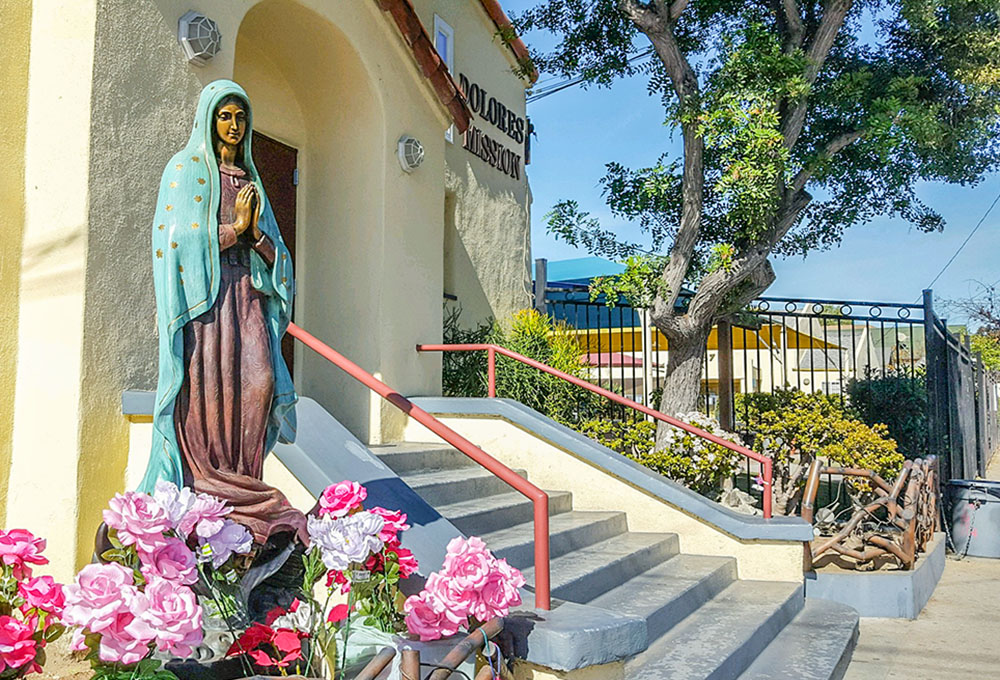
A statue of Our Lady of Guadalupe is seen outside of Dolores Mission Church in Los Angeles. (NCR photo/Dan Morris-Young)
On the first day of 2024, World Peace Day, Pope Francis said something remarkable about the power of women: "The world, too, needs to look to mothers and to women in order to find peace, to emerge from the spiral of violence and hatred, and once more see things with genuinely human eyes and hearts."
As co-director of Discerning Deacons, my hopes were buoyed that the conversation about expanding women's participation in the Catholic Church would continue to grow, given pressing pastoral needs.
After all, during my 12 years' experience working in pastoral ministry in East Los Angeles, I witnessed the courage of Catholic women who helped to lead a community response effort after a 10-year-old girl was killed by a stray bullet while on a scooter in front of her home. Immigrant women from Mexico and Central America wore green shirts and stood outside their homes so that children would have safe passage to and from school. Throughout the year, they organized peace walks and reached out to youth.
Gang members respected the mothers and did not shoot at each other or harass young people if mothers and grandmothers were visibly present.
The first time I was handed a green shirt and stood outside Dolores Mission Church with las señoras during a risky funeral Mass, a few women teased me about my shaking legs. I needed the training in faith and fearlessness these mamás offered.
Advertisement
Recently, Dolores Mission's former pastor, Jesuit Fr. Gregory Boyle, received the nation's highest honor, the Presidential Medal of Freedom. Las señoras were among the first to believe his vision that love could prevail over hate. Their peace walks illuminated the creation of his founding of Homeboy Industries, now the largest gang intervention and rehabilitation program in the country.
For me, the current question being taken up by the church's synod on communion, participation and mission about ordaining women to the diaconate offered hope that perhaps the church was ready to back women doing the hard work of peacemaking in a more determined, stable and ordered way.
When the diaconate as a permanent vocation was restored to men during Vatican II, the bishops were aware of many laymen engaged in diaconal charity and service following the horrors of World War II. They wrote, "It is only right to strengthen them by the imposition of hands which has come down from the Apostles, and to bind them more closely to the altar, that they may carry out their ministry more effectively because of the sacramental grace of the diaconate."
Are women any less deserving of the grace Jesus would offer them as they organize peace walks through violent streets, visit the incarcerated, offer a pastoral presence at immigration detention centers, serve rural Indigenous communities or pray at the bedside of those who are ill and dying?
In an interview last month, Francis may have closed the door on ordaining women to the diaconate during his pontificate. But I certainly hope he doesn't give up on his vision that women have a vital role in helping the world to emerge from spirals of violence and hatred.
During times of discouragement or upswings in violence, Father Greg points us to the biblical prophet Habakkuk, who writes, "For the vision still has its time, presses on to fulfillment, and it will not disappoint. And if it delays, wait for it."
May it be so for Catholic women and the communities in which we serve.




